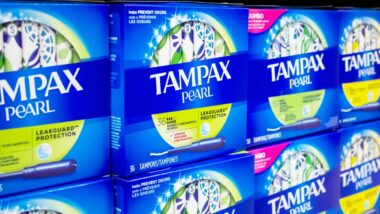Top Class Actions’s website and social media posts use affiliate links. If you make a purchase using such links, we may receive a commission, but it will not result in any additional charges to you. Please review our Affiliate Link Disclosure for more information.
Although cannabis dispensaries have grown in popularity over the past several years, some consumers have complained that these businesses are soliciting business via unwanted text messages and phone calls in violation of the TCPA. One cannabis dispensary that has been accused of doing this is Gage Cannabis.
What Is Gage Cannabis?
Gage Cannabis is a cannabis dispensary located in Michigan. The business sells cannabis products including flower, vaporizers, concentrates, topicals, tinctures, and edibles. According to at least one lawsuit filed against the dispensary, the company may be advertising these products to consumers by sending unsolicited messages to countless consumers.
Plaintiff Dane T. claims that, over the past year, he has received multiple text messages from Gage Cannabis. Although Dane claims that he has never given the company his consent to contact him with advertising messages, he has received multiple text messages containing information on deals and new product drops. These text messages also contained information about how to stop receiving them. After receiving several messages, Dane texted back “Stop” in an attempt to compel Gage Cannabis to cease texting him. However, he claims that the company ignored his opt-out, and continued to send him advertising messages. Due to his inability to compel the company to stop contacting him, he filed a class action lawsuit.
In many cases, these intrusive advertising text messages are pre-written and sent out to consumers through an autodialer. An autodialer allows businesses to send mass texts or make mass phone calls to hundreds of consumers at one time, without human intervention. Under the terms of the TCPA, use of an autodialer to send pre-written or prerecorded messages to consumers who have not consented is against the law.
What Is the TCPA?
The TCPA, or the Telephone Consumer Protection Act, was enacted in 1991 in order to protect consumers from being harassed by unwanted telemarketing phone calls. Over the years, the TCPA has been updated and clarified to adapt to changes in technology. The act prevents businesses from contacting consumers who do not have a business relationship with them, or have not given their prior express consent to be contacted. Additionally, it is generally illegal to contact consumers with a prerecorded voice message or pre-written text. Telemarketers must also allow consumers who have given their consent to receive these messages to opt out at any time. They must also abide by the National Do-Not-Call List, a national registry of consumers who do not wish to be contacted by solicitors.
 Is Gage Cannabis TCPA Compliant?
Is Gage Cannabis TCPA Compliant?
Dane claims that Gage Cannabis is not TCPA compliant, as the company has continued to contact him and ignore his requests to be taken off their advertising list. If Dane wins his lawsuit against the cannabis dispensary, Gage Cannabis may be faced with fines and other penalties.
What Are the TCPA Penalties for Violation?
Consumers who have been subject to harassing and intrusive phone calls or text messages that go against the terms of the TCPA may be able to recover compensation for these intrusions. Generally, consumers are able to pursue $500 for each offending phone call or text. If consumers are able to show that the violations were made willfully, this amount may go up to $1,500.
What Can You Do if You Received Spam Texts?
If you have received spam texts, you may have several options available to you. One way to stop spam calls or texts is to block the number or numbers that are contacting you. However, many solicitors use multiple phone numbers to send advertisements. Another way may be to activate internal phone spam detecting and blocking software. Many cell phones come equipped with this option. Even if your phone does not, you may be able to download a free or paid app to your phone. These spam detecting apps can flag incoming calls and messages as potential spam, and send them straight to voicemail. However, these apps are not always accurate and they may end up blocking calls or texts from friends or family.
Another way to stop spam calls and texts may be to register your phone number with the National Do-Not-Call List. This list is free and easy to sign up for, and once you are signed up, companies have one month to cease contacting you. Although all companies are supposed to comply with the list, not every company does. If you sign up for the list and continue to receive spam calls or texts, your next step may be speaking to a TCPA lawyer.
How Can a Lawyer Help?
A lawyer with experience in TCPA violations may be able to help you file a class action lawsuit against the company sending you advertisements. Victims of TCPA violations who pursue litigation may be able to collect compensation, in addition to compelling the solicitors to cease contacting them.
Join a Free Marijuana Dispensary Unwanted Text Messages Lawsuit Investigation
If you received an unsolicited text message, ringless voicemail, robocall, and/or a call with a pre-recorded voice from a marijuana dispensary, you may be able to join a FREE marijuana dispensary unwanted text message class action lawsuit investigation.
This article is not legal advice. It is presented
for informational purposes only.
ATTORNEY ADVERTISING
Top Class Actions is a Proud Member of the American Bar Association
LEGAL INFORMATION IS NOT LEGAL ADVICE
Top Class Actions Legal Statement
©2008 – 2024 Top Class Actions® LLC
Various Trademarks held by their respective owners
This website is not intended for viewing or usage by European Union citizens.


 Is Gage Cannabis TCPA Compliant?
Is Gage Cannabis TCPA Compliant?












